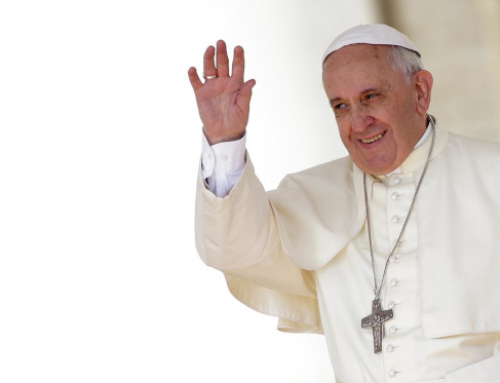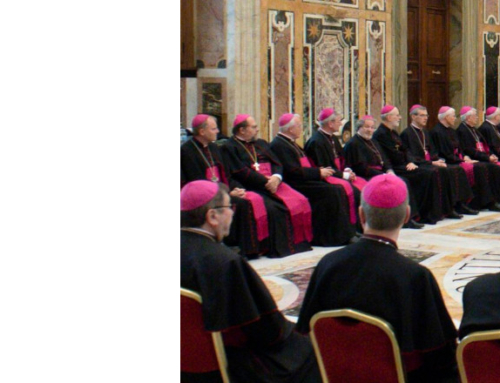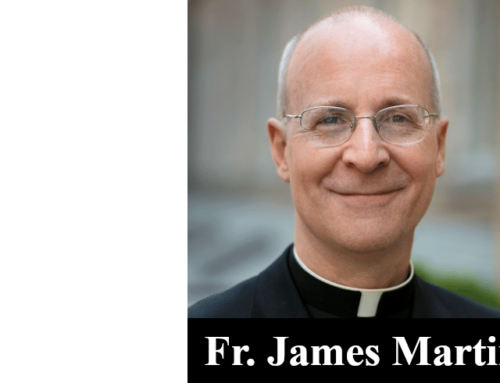Catholic League president Bill Donohue comments on an article in the New Yorker that is critical of the Catholic Church:
Paul Elie is in a constant state of discontent over the Catholic Church. He once championed the voice of pro-abortion Catholic women, and he was never happy with Saint John Paul II or Pope Benedict XVI. The Georgetown professor has also counseled Catholics not to go to church during Lent. Now he is back, this time taking aim at the compensation program for alleged victims in the New York Archdiocese.
Elie’s article is a rambling, disconnected search for dirt. His most senior indictment is the Church’s evasive practices, made manifest in failing to disclose information he wants to see. Perhaps if he examined CBS News, “60 Minutes,” or the Southern Poverty Law Center, he might be persuaded to praise the Church for its straightforward approach—those entities are masters at not revealing information. And they get away with it.
“What Do the Church’s Victims Deserve?” is the title of Elie’s piece. The subtitle is more revealing: “The Catholic Church is turning to outside arbiters to reckon with its history of sexual abuse. But skeptics argue that its legacy of evasion continues.”
Those “skeptics,” it turns out, include Marci Hamilton and Mitchell Garabedian, two lawyers who love to find clients who agree to sue the Church. They are not skeptics: They are Church-hating activists.
If the compensation program started by Cardinal Timothy Dolan is nothing but a PR stunt, as the “skeptics” argue, then why, as even Elie has to admit, has the bar been set so low for claimants to win? One of the persons who runs the Independent Reconciliation and Compensation Program, Kenneth Feinberg, refers to “our lenient standards of evidence.” He said the program pays on “weak claims” in order to achieve “a collective sense of reconciliation.”
That doesn’t sound like a PR stunt. By contrast, New York City Mayor Bill de Blasio continues to defend a program for alleged victims of city employees that sets the bar very high. Dolan could have insisted on such a measure but he did not.
Once the compensation program is over there will be no need to keep the records indefinitely. This bothers Elie. Camille Biros, who works with Feinberg, told Elie the records will be kept for a while, set by “standard operating procedures,” and then destroyed. Elie brands this as “evasion.”
A more honest rendering would be to acknowledge that Feinberg and Biros are veterans at this kind of work. Dolan hired Feinberg precisely because he was a leading arbitration and mediation expert who dealt with the relatives of 9/11 victims, the Deepwater Horizon oil spill, the Boston Marathon bombing, and other cases. In other words, when Biros speaks about “standard operating procedures,” she speaks with authority. Elie may not like it, but not keeping the records indefinitely is the norm.
The bias that Elie sports is on grand display when he indicts the bishops for the Dallas Charter and the John Jay reports on clergy sexual abuse. He accuses the bishops of “prudery, euphemism, and evasion.” Why? Because neither document cites a specific incident of abuse.
There is a reason for that: Neither report was designed to address individual cases. Both are macro reports that seek to understand the issue of the sexual abuse of minors.
The Dallas Charter authorized a National Review Board to investigate wrongdoing; it also lists procedures for dioceses/eparchies to follow. One of the John Jay reports offers a treasure of data on abuse extending back to 1950; the other attempts to explain why it occurred. None of this has anything to do with “prudery.”
At the end of the article, Elie makes plain his criticism of Cardinal Dolan for not telling him exactly what Auxiliary Bishop John J. Jenik did to merit his removal; he was accused of abusing a minor decades ago. But this gotcha game is absurd. Earlier in the article Elie explains what the alleged victim said happened. What more does he want?
The article is chock full of information. Yet it goes nowhere. Indeed, it falls flat.







